''It is definitely disheartening when (Ghoomer) doesn't reach a larger audience, especially when whoever's watched it has come out saying that "It is one of the best things we've seen in a decade" or that "It moved us, and we cried and laughed".'
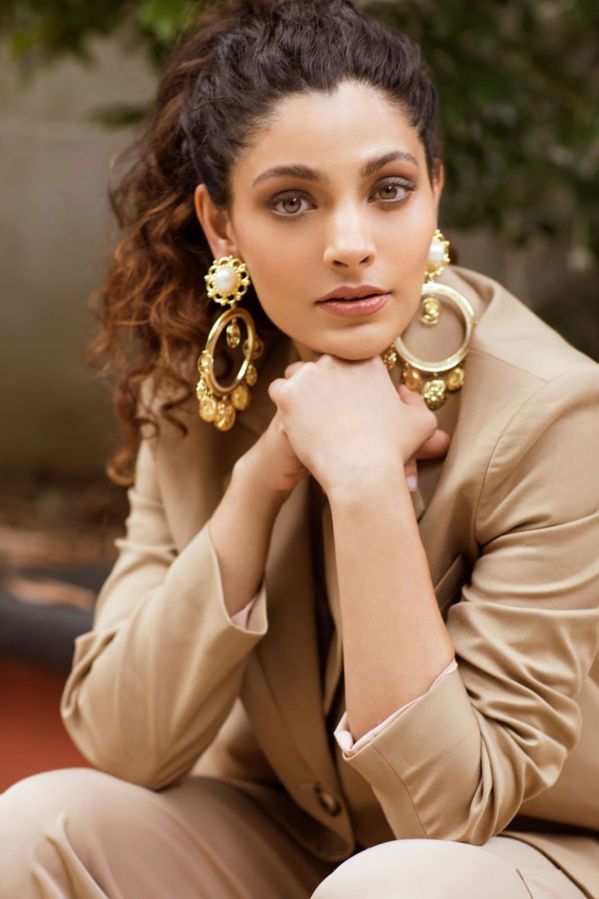
Saiyami Kher's first on screen role in Rakeysh Omprakash Mehra's Mirzya (2016) might have brought her praise, but it did not propel her career the way she would have hoped for.
The actress waited until Anurag Kashyap's Choked (2020) put her back in the spotlight.
She is at the receiving end of high cheers for her portrayal of a handicapped cricketer in R Balki's Ghoomer.
A huge cricket fan, Saiyami says she had to wait for seven years to land a meaty role like this one.
"A lot of times you get work not on the basis of the kind of actor you are, but the commercial viability that you bring to a project," Saiyami tells Mayur Sanap/Rediff.com.
How did Ghoomer happen?
I have known Balki sir for some time. He once saw me playing cricket, and that's where the idea came from.
It was almost four or five years ago, but the film didn't end up happening anytime soon.
He's obsessed about cricket as well.
He said if he makes something on cricket, he will want to make it as authentic as possible. He would make it with me otherwise he wouldn't make it at all. That's what he said.
One of the most interesting things about this character is the name Anina. Where did you get this name?
It was a part of Balki sir's quirky ideas.
There's a dialogue in the film, 'Left se bhi Anina, right se bhi Anina.'
I didn't really ask him about why the character is named a certain way. It was just something which he wanted.

Did you have any apprehensions about playing a role that doesn't suit the conventional heroine trope?
Not at all. I think pretty much all the work I've done has been quite unconventional.
I'm very happy to explore new things, which doesn't follow the norm.
It's a role that anyone would have jumped at because it's such an author-backed and meaty one.
What were the challenges of portraying a handicapped cricketer?
I'm right-handed in life.
To do everything with my left hand was the challenge.
And then to do the ghoomer action in the film!
None of these things were done with cheap shots. The turn was real, the action and everything was real.
Emotionally also, it has been one of the most demanding films I have done. There's so much that the character goes through. It was emotionally exhausting.
Your efforts have paid off because critics are praising your performance. What does this critical acclaim mean to you?
I got a lot of positive feedback after Choked.
But I never got a response like this, be it a letter from Mr (Amitabh) Bachchan, which was a stamp of approval that every actor dreams of, or like reviewers calling and saying that the film emotionally moved them so much.
These are all genuine reactions and it's what we live for.
It has been extremely overwhelming and I'm just trying to soak in all the love coming my way.

But then the film didn't perform well at the box office. That must be very disappointing.
It's obviously disappointing because like I said, this film is particularly close to my heart.
We speak about wanting to be inclusive and having female-centric films, but not much is being done about the support and the championing of a female film.
It is definitely disheartening when (the film) doesn't reach a larger audience, especially when whoever has watched it has come out saying that 'It is one of the best things we've seen in a decade' or that 'It moved us, and we cried and laughed.'
I wish a female-led film was championed a little more.
Unlike your contemporaries, you don't seem to be aggressive about doing too many projects. What is the reason behind the long pauses in your career?
The long pause was only after (her debut film) Mirzya, and the honest truth was that I was not offered any work.
It was not a voluntary pause. It was because there was no work coming my way.
But in the last two-three years, I have done projects that resonated with me.
Be it Ghoomer or Faadu that I did with Ashwiny Iyer Tiwari, Special OPS, Breathe, or 8 A.M. Metro, which is a small film, but I was very keen on doing it.
I've just finished a film with Excel Entertainment.
The last two years have gone into filming a lot of stuff, which is releasing now.

How did you deal with the low phase right at the start of your career?
It taught me a lot.
The biggest lesson we learned in life is when you go through failure.
It taught me that this is a tough place.
When films were not happening, I started doing a lot of theatre because I genuinely enjoy acting.
Also, sports have been the backbone in my life. Every time I'm down and out, I do a marathon or some kind of race. It keeps me in a better space mentally.
What are the things about your profession that you are still trying to figure out?
A lot of times you get work not on the basis of the kind of actor you are, but the commercial viability that you bring to a project.
I guess, at the end of the day, everyone looks at it as a business.
I'm still trying to figure out a balance between this and the creative arts.

What kind of opportunities do you hope to see coming your way after Ghoomer?
I feel blessed every time I'm on a film set because it's my happy place. Given a choice I'd like to go on a film set 365 days a year.
Ghoomer was the dream role that I was asking the universe for seven years. It's been quite a life altering film.
As long as I'm busy and working every day, I'm very happy.
I keep praying that continues to happen.


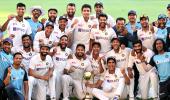






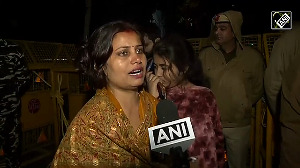
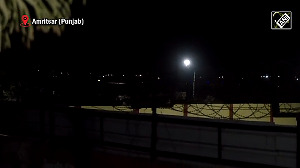
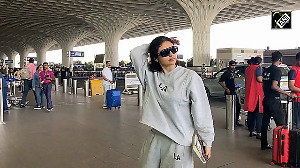
 © 2025
© 2025